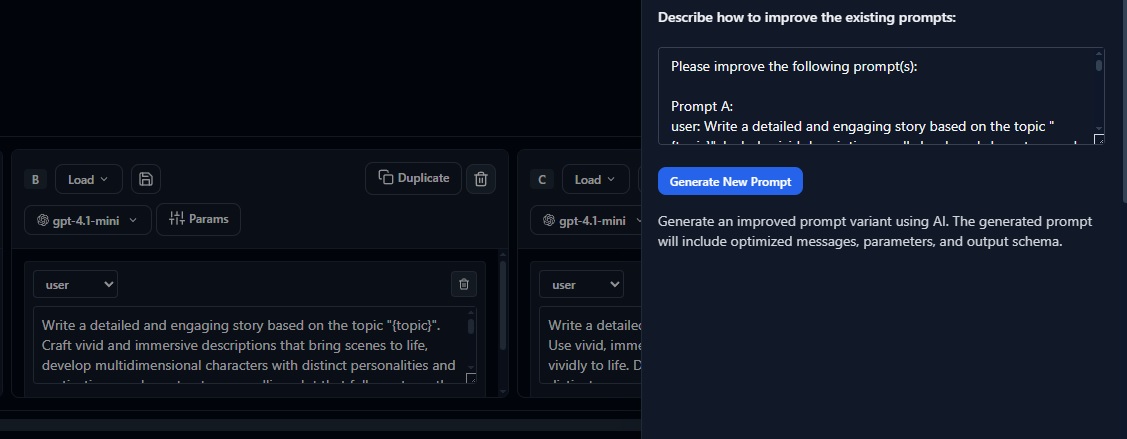Docs / Azure OpenAI
Azure OpenAI
Integrate Azure OpenAI with enterprise-grade security and governance. Configure endpoint, key, and deployment names, then validate quality, cost, and latency on representative datasets before broader rollout.
Azure OpenAI uses Azure RBAC, private networking, and regional data controls. Prefer managed identities when possible, scope access to the minimum required, and track deployment usage to plan safe upgrades.

Setup
- 1
Create a deployment Deploy the desired model (for example, gpt-4o) in your Azure OpenAI resource.
- 2
Configure credentials Use managed identity or store keys in Azure Key Vault. Restrict network access.
- 3
Connect Evaligo Add endpoint, deployment name, and key to Evaligo settings. Test with a small dataset.
- 4
Roll out gradually Compare quality and cost against your baseline before expanding traffic.
import os
from evaligo.integrations import AzureOpenAIIntegration
azure_endpoint = os.getenv('AZURE_OPENAI_ENDPOINT')
azure_key = os.getenv('AZURE_OPENAI_KEY')
deployment = os.getenv('AZURE_OPENAI_DEPLOYMENT')
integration = AzureOpenAIIntegration(
endpoint=azure_endpoint,
api_key=azure_key,
deployment_name=deployment,
)
client = integration.create_client(temperature=0.2, max_tokens=1500)
print('Azure OpenAI client ready:', bool(client))Governance: Tag evaluation traffic with project, environment, and feature flags to enable cost attribution and auditability.
